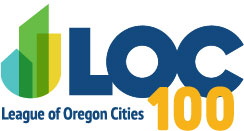Chapter 17: Public Works and Utilities
The state of Oregon granted cities the right to regulate the city right-of-way.
Cities deliver public services through the management of city right-of-way. A city right-of-way is not only used to create a transportation system of streets, sidewalks, and bike lanes, but also the right-of-way contains the infrastructure to allow cities to provide utility services. These utilities can include wastewater treatment, drinking water services, telecommunication utilities, and electric power.
This chapter will define rights-of-way, the creation and extinguishment of right-of-way, who manages the right-of-way, and who maintains the right-of-way.
City-operated utilities such as wastewater, water, and power are discussed below. For each utility, this chapter will discuss the basic operations, the regulatory authority overseeing the utility, the rate setting, and billing customers.
Lastly, this chapter will describe the agreements granted to businesses or investor-owned utilities to operate in the city rights-of-way.
Topics Include:
- Public Rights-of-Way
- City Utilities
- Water Utilities
- Wastewater Utilities
- Stormwater Utilities
- Electric Utilities
- Miscellaneous Utilities
- Other Fees for City Services
- Franchises
- Power to Regulate and Impose Fees
- Differences Between Franchise Agreements and Licenses
- Telecommunications Regulations
- Natural Gas and Electric Service Franchises
- Other Utilities

